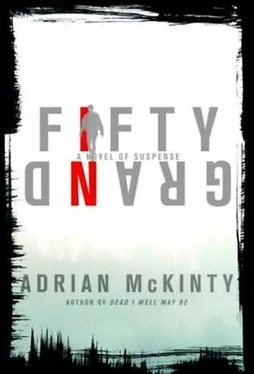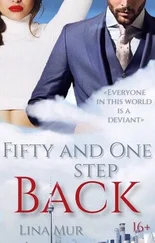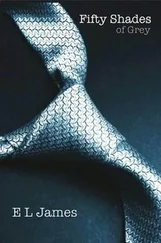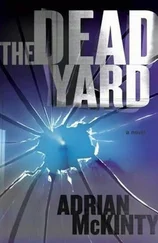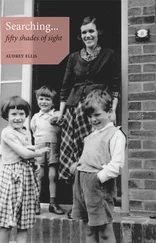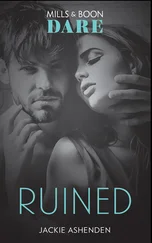“No.”
“What did you study in college?” Hector asks.
“Dual major, sir.”
“Dual major in what?”
“English and Russian.”
“Hedging your bets, eh? I like that.”
“Not really, sir, we didn’t have much choice, we were told what to-”
“When was the last time you walked along here?” Hector interrupts.
“Yesterday. As a matter of fact, every morning. I-”
“Not me, must be a year since I walked here. I have a car, you know. A brand-new Volkswagen from Mexico,” he says with pride.
“I didn’t know that.”
“No. You wouldn’t.” He sighs. “It’s changed since the last time I was here. Worse. In Cuba things always change for the worse.”
“Yes, sir,” I reply and inwardly groan. From past experience I know that Hector is going to hit me with an expansion of this theory.
“Yes, things got worse for the indigenous Cubans when the Spanish came, then they got worse under the Yankees, then worse still under the little dictators, then worse under Sergeant Batista, then worse under Fidel. And you’ll see, it’ll continue to get worse under Raúl and the Venezuelans.”
“And after Raúl?” I venture.
“Ah, you mean when the Miamistas come?” He looks at me with a glint in his eye. “We’ll talk about that in a minute,” he says mysteriously.
We walk along the seawall toward the curve of the Castillo. In the distance is the fort of San Carlos and the chimneys of the oil refineries on the bay.
The wind is blowing the smoke offshore, decanting it north to Florida, 150 sweet sea kilometers from here.
He lights a little cigar, offers me one. I decline. Two summers working in the plantations for the Young Pioneers cured me of any desire to smoke Cuban cigars. He hoists himself up and sits on the seawall.
“Sit next to me,” he says.
I sit.
He smokes his stubby cigar and, feeling the need for more nicotine, reaches into the pocket of his beat-up leather jacket to remove a packet of Dominican cigarettes. He offers me one and this time I do accept. He lights it and I inhale. It’s American. A Camel. He’s hiding American cigarettes in a Dominican packet.
“Do you know the concept of duende, Mercado?”
“Something to do with flamenco?”
He sighs. “My father was at the lecture Lorca gave here in Habana on duende, in 1930. Duende is the dark creative energy, the opposite of the creative spirit of the muses. You must avoid that energy, that energy gets you in trouble, Mercado, killed, like Lorca himself a few years later.”
I stare at him and say nothing. He’s overhearing his own thoughts, trying to bring himself to the point.
He shakes his head. “Please at least tell me you’re familiar with Lorca, Detective Mercado.”
“Of course. Murdered by the fascists.”
“Yes. Murdered by the fascists,” he says slowly, making every word count.
Waves.
Gulls.
A chain grinding against a buoy.
“I’ve got property here,” he says at last, pointing at the rows of derelict and bricked-up buildings on the Malecón.
“Really?” I say with surprise.
“Yes. Land money. Best kind. Seafront. Worth shit now. I got it for nothing. But in five years when the Yankees are back…”
“You think the Yankees will be here in five years, sir?” I ask.
“Give or take, and call me Hector, Mercado. Call me Hector.”
“Yes, sir.”
Beneath us more kids are combing the concrete-and-iron coastal defenses for flotsam or garbage, and farther down the shore in the cool light of day a desperate character is making a raft out of driftwood and polystyrene packing. I point him out.
“You want to fill in a lot of forms today? You didn’t see him,” Hector says.
“No, sir.”
We sit for a minute and listen to the waves. A pale sun is rising over a paler sea. Traffic is starting to pick up on the road.
Hector clears his throat. “I’m not going to argue with you, Mercado. I know you. I know that you’re stubborn and I know that you’re clever and I know that your brother has already taken considerable risks, but I will say this, if you think you’ve pulled the wool over my eyes, you’re mistaken. And if you can’t fool me, then you’re not going to fool anyone in the ministry either.”
“What are you talking about?”
“How long have you worked for me?”
“Since college. Five years.”
“ I made you a detective. I promoted you. Me.”
“I know that, sir, and I’m grateful, and I’ll do everything I can to bring credit to the-”
He shakes his head slightly, narrows his eyes.
“Never had a daughter. Two boys,” he says sadly.
“I know, sir.”
“One works for the Ministry of Fruit Cultivation, the other one doesn’t work.”
I know that, too, but I don’t reply.
“For a while there, Mercado, I thought we had a connection. Something special. The other day in the Vieja…” His voice trails off into a cough.
He doesn’t continue when he clears his throat.
“Yes, sir?” I prompt him.
“Call me Hector. I prefer that.”
“Yes, uh, Hector.”
“I like the way you say that. Now, why don’t I lay my cards on the table, and then you can do the same and you can try me with the truth. How does that sound?”
“Ok.”
Hector smiles. He doesn’t seem angry but he’s bristling, and I can tell that I am irritating him. “Mercado, it’s like this: your brother came back from America last week. He had to get permission from the DGI and the Foreign Ministry and then a license from the U.S. Department of State. The waiver he got was to attend some preposterous conference on Cuba in New York. The license did not permit him to travel outside New York City.”
“I believe I told you that already, it’s no secret. I-” I begin but he cuts me off savagely.
“Listen to me! I know, ok?”
“Know what, sir?”
“Your brother went to Colorado. Your father was killed in an unsolved hit-and-run accident in Colorado. He was living in Colorado under a Mexican passport. He was drunk, the car did not stop.”
“My brother did indeed go out to Colorado but I think you’ve gotten things mixed up, sir. That was almost six months ago, that was a completely different trip. For that trip he was granted a special visa from the Foreign Ministry-”
“Two trips to the USA, both of them benign. End of story, right?” he mutters.
“Right.”
“Wrong. I think Ricky went out there again last week, at your instigation, to do some digging into the accident. When he came back you two talked, he confirmed your suspicions, and that’s why you want to go to America. It’s nothing to do with the university. You’ve been planning this thing for months.”
“You’re mistaken,” I say quickly in an attempt to conceal my panic. Old bastard had me cold. “My father is a traitor to the Revolution. He abandoned his family. I have had no contact with him since he left Cuba. I want to go to Mexico to attend UNAM. I am not going to the United States.”
Hector flicks ash, nods. If it were me, I’d press the attack, but he doesn’t, he merely sighs and throws his cigarette end off the seawall. It’s been a while since Hector braced a currency dealer or a pimp; he’s lost his touch.
Finally, after a minute of dead air, when I’ve collected myself, he does speak: “Police captains in the Policía Nacional de la Revolución have some influence, Mercado. We are allowed to use the Internet. We are allowed to look in certain files of the DGI and the DGSE. And most of us have to be of reasonable intelligence.”
“I’m not doubting your intelligence, sir, I just don’t know quite how you’ve got it all so wrong in this particular situation.”
Читать дальше
